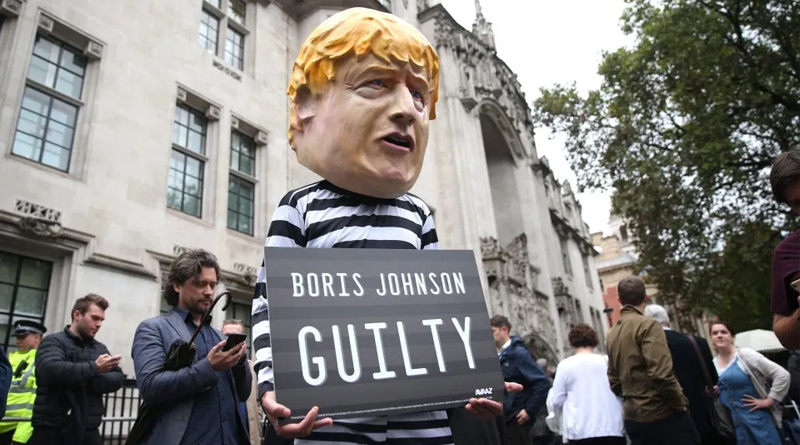On August 28, British Prime Minister Boris Johnson prorogued Parliament to thwart his opponents from stopping a no-deal exit from the European Community. Outraged critics immediately petitioned the courts. On September 5, a London divisional court heard the case in just one day and gave its verdict the very next day — that this was a political, not legal matter, and so the court felt it had no jurisdiction.
The plaint then went to Scotland’s highest appeal court, which heard the case and gave its verdict within a few days, on September 11. It ruled that the Prime Minister had contravened the Constitution in trying to stop the functioning of Parliament, so his action was illegal.
The matter then went to the UK Supreme Court. It heard two appeals in just three days and reserved judgment for a few more. It gave its verdict on September 24, confirming that the Prime Minister had acted unconstitutionally.
Many commentators have analysed the legal and political consequences of the case. This column would prefer to highlight the fact that a case of the highest political magnitude was heard and concluded at no less than three judicial levels in just 27 days—eight days less if we omit weekends that are non-working days. Hurrah, this is what justice should be — swift, comprehensive and conclusive.
This puts to shame India’s judicial system, which holds the world record of 32 million pending cases. As a teenager in the 1950s, I cringed on hearing a policeman, who was dismayed by the law’s delay, saying “Angrezon ke zamane mein insaaf hota tha (in British times there used to be justice)”. The late author Khushwant Singh said so too in more than one article. Seeing the speed at which the British courts delivered their verdicts on Johnson, I cringed again. So should all Indians, including judges.
In India, too, a major constitutional issue has arisen. On August 5, the government decided to scrap Articles 370 and 35A of the Constitution by an executive order. Critics howled that the executive order was legal trickery to avoid the normal amending of the Constitution through a twothirds majority in both houses of Parliament, which the BJP lacked. In Britain, the courts took up the constitutional issue in less than one week. But not in India.
A separate issue of human rights has also arisen. Although the government claims that its move would accelerate economic development and make Kashmir prosperous, it so feared violent protests by an enraged public that it locked down the state. It shut down telephones, internet and TV. Thousands of Opposition politicians (including former chief ministers), journalists and intellectuals were jailed or put under house arrest. Barbed wire and armed troops sprouted throughout Srinagar, with schools, colleges and other institutions closed. Free movement within or into the state was forbidden. Thousands of crores worth of business was lost.
This has continued for over 50 days despite the absence of street protests. Some curbs have been lifted gradually. But surely an independent judiciary must quickly hear those who complain that the basic rights of Kashmiris have been violated, and also the rights of people wanting to visit the state.
Ideally, the Supreme Court should have begun hearings immediately. In fact, it will start hearings only on October 5, a good two months after the lockdown. We must hope that the court will cut short all the legal tricks used by lawyers in India to drag out proceedings for months or years. We need to be inspired by Britain’s example of disposing of a constitutional case at three court levels in 27 days.
The delay in the Kashmir case is by no means extraordinary. Millions of cases are pending at all judicial levels. The dispute over the Babri Masjid started way back in the 19th century, and has yet to reach a legal conclusion. This too is an exceptionally important case, yet the judicial process has dragged on for decades. The Allahabad high court gave its verdict in 2010. Nine years later, the Supreme Court is yet to conclude the case. It has set October 18 as the date for final hearing of arguments. We must hope for a quick verdict after that.
And a simple one, please. Sometimes all five judges in a five-judge bench will give five separate verdicts running into hundreds of pages. By contrast, the UK Supreme Court gave a unanimous verdict on Boris Johnson in just 74 paragraphs. The length of a judgment does not signify quality, and often signifies the opposite. Verdicts should be quick, short and lucid.


